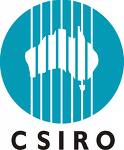Applications Before you apply ensure that your documents are in Text, MS Word or PDF. Ensure your file is not larger than 1MB in PDF format, or 2MB for all other formats. Your Documents will be converted into PDF format. To view these documents once converted you will need to download Adobe Reader Download Adobe Reader CSIRO prefers applications be lodged online via this careers site. You are required to include two documents:(1) A document Addressing the "Selection Criteria" and (2) A "Resume or CV" including the names of at least two referees. Note: Applications that do not address the selection criteria will not be considered. If you experience difficulties applying online call 1300 301 509 and someone will be able to assist you. Outside business hours please email: csiro-careers@csiro.au If you are unable to lodge your application online, please fax your application (quoting reference number 2007/1344) to +61 2 6246 4455 or alternatively post to: CSIRO Careers Online
PO Box 225
DICKSON ACT 2602 Contact: Should you require more information on this position please contact Dr. Ming Feng on telephone +61 (0)8 9333 6512 or email Ming.Feng@csiro.au Please do not email your application directly to Dr Feng. Applications received via this method will not be considered. Please use the 'Apply Now' link. ABOUT MARINE AND ATMOSPHERIC RESEARCH CSIRO Marine and Atmospheric Research (CMAR) was formed on 1 July 2005 through the merger of CSIRO Marine Research and CSIRO Atmospheric Research. CMAR aims to strengthen Australian climate, marine, and earth systems science. The Division currently conducts research across four themes: - Climate, Weather and Ocean Prediction;
- Atmospheric and Earth Systems Assessment and Prediction;
- Sustainable Marine Resources and Industries; and
- Integrated Coastal Management.
The Climate, Weather and Ocean Prediction Theme integrates fundamental climate science and the capacity to predict the behaviour of the climate system across all timescales with the ability to deliver useful applications across a wide variety of industries for the benefit of the Australian community. The research delivers to all six of CSIRO’s Flagships. The Division has almost 550 research and support staff, plus more than 100 students and long-term visitors, and an annual budget of $91million. Staff are located at sites in five states: Melbourne (Aspendale), Victoria; Canberra, ACT; Brisbane (Cleveland), Queensland; Perth (Floreat Park), Western Australia; and Hobart, Tasmania, where the Office of the Chief is located. CMAR also manages the National Facility – Ocean Research Vessel Southern Surveyor. For further information about CSIRO Marine and Atmospheric Research, visit our website at www.cmar.csiro.au. ABOUT The Western Australian Marine Science Institution The newly formed Western Australian Marine Science Institution (WAMSI) is establishing a leading research capability, underpining the conservation and sustainable management of the State of Western Australia’s marine environment and resources. The Institution is building upon the State’s already strong marine science capacity to create a world class science Institution to provide economic, social and environmental benefits to the State of Western Australia. There are twelve core Parties in this collaborative venture, from Commonwealth and Western Australian State Government research organisations, including the Bureau of Meteorology, CSIRO and AIMS, together with the Western Australian universities and the private sector. Each of the Parties brings to the Institution, an array of capacities including research personnel and expertise. This Institution is the catalyst to further develop the State of Western Australia’s innovative capacity and will engage high-capacity researchers to enable the State to protect and sustainably develop its pristine marine environment, particularly the Ningaloo Marine Park. It will also secure the State’s competitive advantages in its established offshore energy and fishing industries, and build on its emerging tourism, aquaculture and biotechnology sectors. For further information about WAMSI, visit our website at www.wamsi.org.au. | 